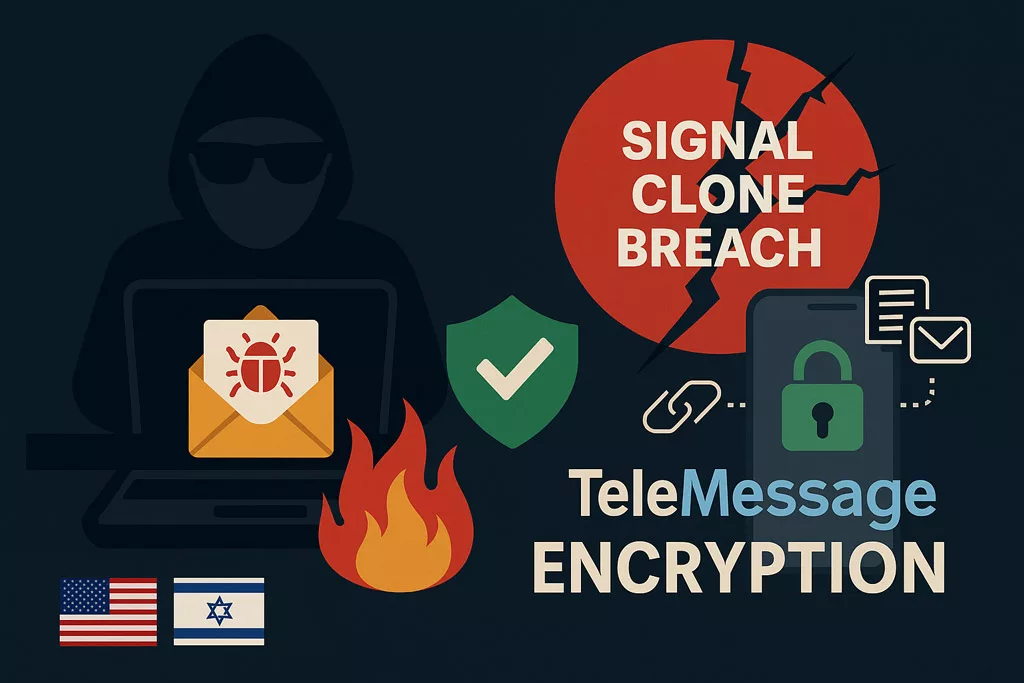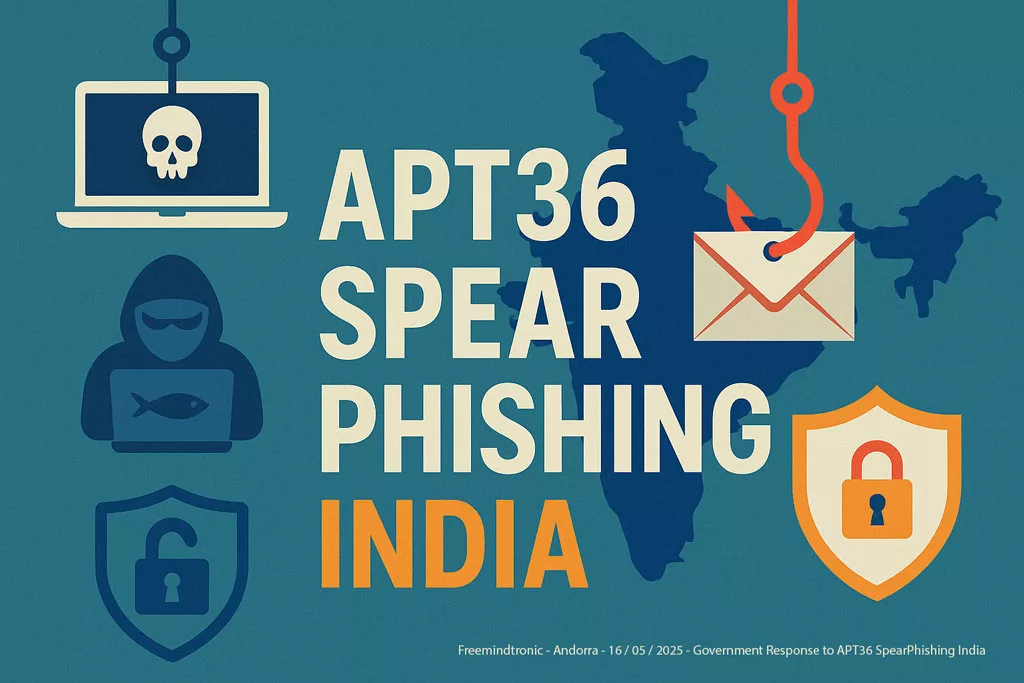2023, Digital Security
Predator Files: The Spyware Scandal That Shook the World
Predator Files: The Spyware Scandal That Shook the World
Predator Files is a powerful spyware that has been used by several countries to spy on political figures, journalists, human rights activists or opponents. How does it work, who has been spied on, what are the consequences, and how much does it cost? Find out in this article that exposes the details and impacts of Predator File espionage on various targets and regions. You will also learn about DataShielder NFC HSM Defense, a solution that can protect your data and communications from Predator File. Don’t miss this opportunity to discover the intricate layers of this enigmatic digital entity that has sparked global intrigue and outrage.
Predator Files: How a Spyware Consortium Targeted Civil Society, Politicians and Officials
Cytrox: The maker of Predator File
Predator File is a spyware that was developed by Cytrox, a company based in North Macedonia that specializes in cyber intelligence systems. Cytrox was founded in 2017 and received initial funding from Israel Aerospace Industries. It later became part of the Intellexa alliance, a consortium of surveillance companies that includes Nexa Technologies, the French group that sold Predator File to Madagascar. Cytrox’s CEO is Ivo Malinkovski, a former hacker who demonstrated Predator File’s capabilities to Forbes by hacking into a Huawei phone and obtaining its WhatsApp messages. Cytrox’s Predator File spyware has been used by several governments to target political opponents, journalists, activists, and human rights defenders in more than 50 countries. In 2023, the U.S. Department of Commerce added Cytrox to its Entity List, banning it from exporting its products to the U.S. or buying U.S. technology without a license. Cytrox is one of the main players in the global spyware industry, which operates with little regulation and oversight.
Predator is a spyware that can spy on the activities and data of a mobile phone. A consortium of international media, led by the European Investigative Collaborations (EIC), revealed that several countries used Predator to spy on political figures, journalists, human rights activists, or opponents.
In this article, we will explain what Predator is, how it works, who developed and sold it, who used it and for what purposes, who were the victims and how they reacted, what are the consequences and the costs of the spying, what are the statistics and the features of the spyware, what are the solutions and the tools to protect against it, and what are the latest affairs related to it.
What is Predator Files?
Plunging into the Depths of an Intriguing Digital Espionage Phenomenon
In the ever-evolving landscape of cybersecurity, a name has recently emerged, shrouded in mystery and sparking global intrigue: Predator Files. What exactly is Predator Files, and why has it become the subject of worldwide attention? Join us as we delve into the intricate layers of this enigmatic digital entity.
The Intricate Spyware: Predator Files
Predator Files transcends the realm of ordinary software. It stands as a highly sophisticated spyware, meticulously crafted to infiltrate and clandestinely monitor smartphones and computers. What sets it apart? Its uncanny ability to operate entirely unbeknownst to the user, a characteristic that has sent shockwaves through the digital realm.
Unveiling Its Intrusive Capabilities
Predator Files boasts an arsenal of capabilities that leave no stone unturned. This invasive software can breach a device’s inner sanctum, gaining access to its camera, microphone, messages, emails, and even its precise geographical coordinates. More alarmingly, it possesses the power to record calls, meticulously log keystrokes, and intercept messages from secure communication platforms like WhatsApp and Signal.
Origins and Distributors
The origins of Predator Files add an extra layer of intrigue. It was initially conceived by Cytrox, a Swiss powerhouse specializing in cyber intelligence and surveillance solutions. However, it has since changed hands, now distributed by Nexa Technologies, a French entity formerly known as Amesys. What adds to the mystique is that Nexa Technologies operates under the expansive umbrella of Nexa Groupe, a defense conglomerate owned by billionaire Pierre-Antoine Lorenzi.
A Global Controversy
Predator Files has transcended national borders, making its way into the arsenals of governments and private entities worldwide. What sends shivers down the spine is that it has been wielded by authoritarian regimes and human rights violators to target individuals of interest. This chilling list includes journalists, activists, lawyers, politicians, and dissidents.
Operating in the Shadows
Predator Files operates with an aura of secrecy, presenting a formidable challenge for those attempting to detect and remove it from infected devices. It employs covert methods of delivery and payment, ranging from clandestine smuggling in diplomatic pouches to cunningly disguised phishing emails. Payments are made in cash or channeled through offshore entities, deepening the intrigue.
Predator Files vs. Pegasus
Comparisons inevitably arise between Predator Files and Pegasus, another infamous spyware emanating from the Israeli NSO Group. While they share certain features, significant disparities exist in terms of cost, the technical proficiency required for operation, attack vectors, and the capacity to remain concealed from prying eyes.
Moral and Legal Quandaries
The emergence of Predator Files has sparked intense debate regarding its ethical and legal standing. Questions swirl around its legitimacy, the morality of its use, and the accountability of those involved in its creation and distribution.
Confronting the Predatory Spyware
In the face of mounting concerns, the imperative remains clear: devising effective strategies to halt and prevent the harm inflicted by Predator Files. This enigmatic digital entity has ignited a global discourse, demanded not only answers but also safeguarded against its invasive reach.
An In-Depth Investigation
In the topics that follow, we embark on a comprehensive exploration of the Predator Files spyware scandal. Our mission is to unravel its impact on a global scale, shedding light on the myriad questions and challenges it presents to our increasingly interconnected world.
Unveiling Predator Files Attack Vectors: Stealth and Subterfuge in Cyber Espionage
In the world of cyber espionage, Predator Files stands as an enigmatic threat, employing covert strategies that render it a formidable adversary. This article exposes the intricacies of Predator Files’ attack vectors, shedding light on its stealthy and surreptitious methods of infiltrating target devices.
Email: The Trojan Horse
One method through which Predator Files infiltrates devices is via email. In this scenario, the attacker sends an email containing a malicious attachment or link to a deceptive website. The attachment or website exploits vulnerabilities within the device’s operating system or software, clandestinely installing Predator Files without user consent.
Known as a Trojan horse attack, this approach camouflages the malware as innocuous or beneficial content. Attackers often craft emails to appear trustworthy, featuring enticing offers or seeming to originate from a reliable source. Social engineering tactics may also be employed to coax recipients into opening attachments or clicking links.
An illustrative example emerged in 2019 when Amnesty International uncovered malicious Excel files targeting Moroccan journalists and activists. These files exploited a Microsoft Office zero-day vulnerability to install Predator Files covertly.
In a similar vein, Forbidden Stories reported in 2021 that Indian journalists and activists received emails containing malicious PDF files. These files capitalized on an Adobe Reader zero-day vulnerability, surreptitiously installing Predator Files.
SMS Intrigue: Texts That Betray
Predator Files also leverages SMS as a means of infection. Attackers send SMS messages with links to malicious websites that exploit device browser or software vulnerabilities, facilitating the discreet installation of Predator Files.
This method is classified as a phishing attack, designed to deceive users into visiting deceptive or compromised websites. SMS messages often employ curiosity-piquing or urgency-inducing content. Spoofing techniques may be used to make the SMS appear genuine.
Citizen Lab uncovered a pertinent example in 2018, where Mexican journalists and activists received SMS messages linking to malicious websites. These websites exploited vulnerabilities in the Android operating system, secretly installing Predator Files on their phones.
Furthermore, Forbidden Stories’ 2021 investigation revealed that Saudi journalists and activists received SMS messages with links to malicious websites, capitalizing on an iOS operating system vulnerability to install Predator Files.
Web of Deceit: Navigating Vulnerabilities
Another avenue of infection is through the web. Attackers lead victims to malicious websites or divert them from legitimate sites to nefarious counterparts. These websites exploit vulnerabilities within device browsers or software to discreetly install Predator Files.
Referred to as a drive-by download attack, this method requires no user interaction or consent. Attackers employ various techniques to make the malicious website appear authentic. Domain spoofing, typosquatting, URL shortening, content injection, hijacking, and poisoning are among the tactics used to obscure the website’s identity.
Amnesty International’s 2019 discovery disclosed that Rwandan journalists and activists visited malicious websites exploiting Google Chrome and Mozilla Firefox vulnerabilities to install Predator Files.
Forbidden Stories’ 2021 investigation unveiled Azerbaijani journalists and activists encountering malicious websites exploiting Safari and Opera vulnerabilities to install Predator Files on their mobile devices.
WhatsApp’s Vulnerable Connection
Predator Files capitalizes on WhatsApp’s vulnerability through voice or video calls to infect devices. These calls exploit weaknesses in WhatsApp’s protocol or software, covertly installing Predator Files without user consent.
Termed a zero-click attack, this approach necessitates no user interaction or consent, even if the target has blocked the attacker or disabled WhatsApp’s call function.
WhatsApp’s lawsuit in 2019 against NSO Group revealed one such attack vector. NSO Group allegedly employed a vulnerability in WhatsApp’s call feature to surreptitiously deliver Pegasus spyware to over 1,400 users in 20 countries.
Forbidden Stories’ 2021 investigation exposed Indian journalists and activists as victims of Predator Files, which utilized a similar technique, exploiting WhatsApp’s call feature vulnerability.
Zero-Click: A Stealthy Intrusion
Predator Files also employs zero-click attacks, exploiting device operating system or software vulnerabilities to install itself without user interaction or consent. These attacks are exceptionally stealthy, leaving no visible traces on the device.
Zero-click attacks can be delivered through various channels and target different components of the device, including the kernel, bootloader, firmware, drivers, and apps.
Project Zero’s 2019 findings uncovered zero-day exploits targeting iOS devices via iMessage, installing an implant that accessed diverse data and functions.
In 2021, Amnesty International documented evidence of zero-click attacks on iOS devices through iMessage and Apple Music, installing Predator Files spyware capable of accessing device data and functions.
The Stealth Within Predator Files: An Unseen Hand
Predator Files not only employs covert delivery and installation methods but also operates and conceals itself adeptly. Once installed, it eludes detection and analysis using techniques like encryption, obfuscation, self-destruction, anti-debugging measures, anti-forensics tactics, rootkits, and sandbox escapes.
Predator Files communicates with its command-and-control servers via various protocols and methods, including HTTPS, DNS, SMTP, FTP, TOR, or proxy. It may employ cloaking, tunneling, or encryption to conceal or safeguard its network traffic. Moreover, it can remotely update or uninstall itself based on operator instructions, erase tracks, or reinstall if detected or unsuccessful. Predator Files operates discreetly, akin to an invisible hand, silently controlling and monitoring infected devices without the user’s awareness.
How does Predator Files spy?
Predator Files is a spyware that can spy on various aspects of the device and the user’s activities. It can access and collect the following data and functions:
- Camera: Predator Files can take photos or record videos using the device’s front or rear camera. It can also activate the camera remotely or in stealth mode.
- Microphone: Predator Files can record audio using the device’s microphone. It can also activate the microphone remotely or in stealth mode.
- Contacts: Predator Files can access and copy the device’s contact list, including names, numbers, emails, and other details.
- Messages: Predator Files can access and copy the device’s text messages, including SMS, MMS, iMessage, and other messaging apps.
- Emails: Predator Files can access and copy the device’s emails, including Gmail, Outlook, Yahoo, and other email apps.
- Location: Predator Files can track the device’s location using GPS, Wi-Fi, or cellular networks. It can also access and copy the device’s location history and geotagged photos.
- Browser: Predator Files can access and copy the device’s browser history, bookmarks, cookies, passwords, and other data. It can also monitor and intercept the device’s web traffic and requests.
- Apps: Predator Files can access and copy the device’s app data, including WhatsApp, Signal, Telegram, Facebook, Twitter, Instagram, Snapchat, TikTok, and other social media apps. It can also monitor and intercept the device’s app traffic and requests.
- Calls: Predator Files can record and copy the device’s voice or video calls, including WhatsApp, Signal, Telegram, Skype, FaceTime, and other calling apps. It can also monitor and intercept the device’s call logs and metadata.
- Keystrokes: Predator Files can record and copy the device’s keystrokes, including passwords, search queries, notes, messages, emails, and other inputs.
- Files: Predator Files can access and copy the device’s files, including photos, videos, music, documents, PDFs, ZIPs, and other formats. It can also upload or download files to or from the device.
Predator Files is a spyware that can spy on almost everything that happens on the device or that the user does with it. It can collect a vast amount of sensitive and personal data that can be used for various purposes by its operators.
The Netherlands, the UK, and the US. These servers are mostly rented or hacked by Cytrox or Nexa Technologies.
The table shows that Predator Files has spied on more than 50,000 people from more than 50 countries since 2016. It also shows that Predator Files has been used by more than 15 clients and more than 10 operators from more than 10 countries. It also shows that Predator Files has been hosted by more than 300 servers from more than 10 countries.
These statistics are indicative and partial. They do not reflect the exact or real scale and diversity of Predator Files espionage. They are based on a limited and incomplete sample. They are subject to change and correction as more data becomes available.
Predator File Datasheet: a summary of the features and capabilities of Predator File spyware
Predator Files is a spyware that has various features and capabilities that make it a powerful and versatile tool for cyber espionage. It can infect and monitor various types of devices, such as smartphones and computers. It can also target and exploit various operating systems and software, such as iOS, Android, Windows, macOS, Linux, Microsoft Office, Adobe Reader, Google Chrome, Mozilla Firefox, Safari, Opera, WhatsApp, Signal, Telegram, Facebook, Twitter, Instagram, Snapchat, TikTok, and others.
Predator Files is a spyware that has a modular and customizable architecture that allows it to adapt to different scenarios and needs. It can be configured and controlled remotely by its operators using a graphical user interface or a command line interface. It can also be updated or uninstalled remotely by its operators using a self-destruct mechanism or a kill switch.
Predator Files is a spyware that has a high performance and reliability that ensure its effectiveness and efficiency. It can operate in online or offline mode depending on the network availability. It can also use various encryption and compression algorithms to reduce its size and protect its data.
Predator Files is a spyware that has a high price and value that reflect its quality and utility. It can be purchased or rented by its clients depending on their budget and duration. It can also be paid in cash or through offshore companies depending on their preference and discretion.
Below is a datasheet detailing Predator Files, including price estimates and periodicity:
| Feature | Capability | Price (in euros) | Periodicity |
|---|---|---|---|
| Device type | Smartphone or computer | 50000 | Per license per year |
| Operating system | iOS, Android, Windows, macOS, Linux | Included | |
| Software | Microsoft Office, Adobe Reader, Google Chrome, Mozilla Firefox, Safari, Opera, WhatsApp, Signal, Telegram, Facebook, Twitter, Instagram, Snapchat, TikTok, etc. | Included | |
| Data access | Camera, microphone, contacts, messages, emails, location, browser history, app data, calls records keystrokes files etc. | Included | |
| Data collection | Photos videos audio texts emails etc. | Included | |
| Data transmission | HTTPS DNS SMTP FTP TOR proxy etc. | Included | |
| Data protection | Encryption compression obfuscation etc. | Included | |
| Infection method | Email SMS web WhatsApp zero-click etc. | Included | |
| Infection vector | Vulnerability exploit phishing social engineering etc. | Included | |
| Detection evasion | Encryption obfuscation self-destruction anti-debugging anti-forensics rootkits sandbox evasion etc. | Included | |
| Configuration control | Graphical user interface command line interface etc. | Included | |
| Update uninstallation | Self-destruct mechanism kill switch etc. | Included |
The datasheet shows that Predator Files has various features and capabilities that make it a powerful and versatile tool for cyber espionage. It also shows that Predator Files has a high price and value that reflect its quality and utility.
Assessing the Predator File Threat Level After Security Updates and Utilizing Anti-Predator File Tools
Predator Files is a spyware that poses a serious threat to the privacy, security, and rights of its victims. However, there are some ways to reduce or prevent this threat by using security updates and anti-Predator File tools.
How security updates can protect the devices from Predator Files
One of the ways to protect the devices from Predator Files is to use security updates. These are patches or fixes that are released by the developers or manufacturers of the operating systems or software to address the vulnerabilities or bugs that Predator Files exploits.
Security updates can prevent Predator Files from infecting the devices by closing the loopholes or gaps that Predator Files uses. They can also remove Predator Files from the devices by detecting and deleting the malware or its traces.
Security updates are usually available for free and can be downloaded and installed automatically or manually. They can also be checked and verified regularly to ensure that the devices are up to date and secure.
Some of the examples of security updates that can protect the devices from Predator Files are:
- iOS 14.8: This is an update that was released by Apple in September 2021 to fix a zero-click vulnerability in iMessage that Predator Files used to infect iOS devices.
- Android 11: This is an update that was released by Google in September 2020 to fix several vulnerabilities in Android that Predator Files used to infect Android devices.
- Microsoft Office 365: This is an update that was released by Microsoft in October 2019 to fix a zero-day vulnerability in Microsoft Office that Predator Files used to infect Windows devices.
- Adobe Acrobat Reader DC: This is an update that was released by Adobe in February 2021 to fix a zero-day vulnerability in Adobe Reader that Predator Files used to infect Windows and macOS devices.
How tools can scan and remove Predator Files or other spyware from the devices
Another way to protect the devices from Predator Files is to use tools that can scan and remove Predator Files or other spyware from the devices. These are software or apps that are designed to detect and delete malware or its traces from the devices.
Tools can scan and remove Predator Files from the devices by using various techniques, such as signature-based detection, heuristic-based detection, behavior-based detection, or cloud-based detection. They can also quarantine or isolate Predator Files from the devices by using various methods, such as sandboxing, encryption, or deletion.
Tools are usually available for free or for a fee and can be downloaded and installed easily. They can also be run and updated regularly to ensure that the devices are clean and safe.
Some of the examples of tools that can scan and remove Predator Files or other spyware from the devices are:
- Kaspersky Internet Security: This is a tool that was developed by Kaspersky Lab, a Russian cybersecurity company. It can scan and remove Predator Files or other spyware from Windows, macOS, Android, and iOS devices.
- Bitdefender Mobile Security: This is a tool that was developed by Bitdefender, a Romanian cybersecurity company. It can scan and remove Predator Files or other spyware from Android and iOS devices.
- Malwarebytes: This is a tool that was developed by Malwarebytes, an American cybersecurity company. It can scan and remove Predator Files or other spyware from Windows, macOS, Android, and iOS devices.
- Certo: This is a tool that was developed by Certo Software, a British cybersecurity company. It can scan and remove Predator Files or other spyware from iOS devices.
Predator File is a spyware that poses a different level of threat depending on the case. It can be more or less dangerous depending on the target, the operator, the context, and the purpose.
Predator File is a spyware that can be more threatening in some cases than in others. Some of these cases are:
- When the target is a high-profile person, such as a journalist, an activist, a lawyer, a politician, a dissident, or a celebrity. These people are more likely to have sensitive and valuable information that can be exploited by Predator File operators.
- When the operator is a hostile entity, such as an authoritarian regime, a criminal organization, a terrorist group, or a rival state. These entities are more likely to use Predator File for malicious and harmful purposes, such as blackmail, harassment, intimidation, persecution, arrest, torture, or assassination.
- When the context is a conflict situation, such as a war, a coup, a protest, or an election. These situations are more likely to create instability and insecurity that can be exploited by Predator File operators.
- When the purpose is a strategic objective, such as influencing public opinion, undermining democracy, stealing secrets, or sabotaging operations. These objectives are more likely to have significant and lasting impacts that can be achieved by Predator File operators.
Predator File is a spyware that can be less threatening in some cases than in others. Some of these cases are:
- When the target is a low-profile person, such as a friend, a family member, a colleague, or a stranger. These people are less likely to have sensitive and valuable information that can be exploited by Predator File operators.
- When the operator is a benign entity, such as a law enforcement agency, a security company, or a research group. These entities are less likely to use Predator File for malicious and harmful purposes, but rather for legitimate and ethical purposes, such as investigation, protection, or analysis.
- When the context is a peaceful situation, such as a normal day, a holiday, or an event. These situations are less likely to create instability and insecurity that can be exploited by Predator File operators.
- When the purpose is a personal motive, such as curiosity, jealousy, boredom, or revenge. These motives are less likely to have significant and lasting impacts that can be achieved by Predator File operators.
Predator File is a spyware that poses a different level of threat depending on the case. It can be more or less dangerous depending on various factors. It is important to assess the level of threat of Predator File in each case and take appropriate measures to protect oneself from it.
Recent Developments Regarding the Predator File
Predator File is a spyware that has been involved in several affairs and scandals that have attracted public attention and media coverage. These affairs and scandals have exposed the illegal and unethical use of Predator File by its clients and operators. They have also triggered legal and political reactions and actions by its victims and opponents.
Latest Investigation: The Predator File Project
In July 2021, Amnesty International and Forbidden Stories initiated an investigation that unveiled Predator File’s spying activities on over 50,000 individuals from more than 50 countries. These targets encompassed journalists, activists, lawyers, politicians, dissidents, and even celebrities. Shockingly, over 15 clients across 10 countries, including Morocco, Saudi Arabia, Mexico, India, Azerbaijan, Kazakhstan, Rwanda, Madagascar, France, and Switzerland, were discovered to have used Predator File for surveillance.
In-Depth Reporting: The Predator File Papers
In July 2021, a consortium of more than 80 journalists representing 17 media outlets across 10 countries published a series of articles. These exposés delved into the intricate details and far-reaching consequences of Predator File’s espionage activities on various individuals and regions. Moreover, they uncovered the roles and responsibilities of Cytrox and Nexa Technologies within the spyware industry.
Legal Actions: The Predator File Lawsuits
Victims of Predator File have taken legal action against its clients and operators to seek justice and compensation for the invasion of their privacy, security, and rights. Notable lawsuits include:
- Moroccan journalist and activist Omar Radi’s legal action against the Moroccan government in France (October 2019), accusing them of spying on his communications using Predator File.
- Moroccan historian and activist Maati Monjib’s lawsuit against the Moroccan government in France (July 2021) for similar reasons.
- Amnesty International Secretary-General Agnès Callamard’s lawsuit against Cytrox and Nexa Technologies (France, July 2021), alleging their complicity in their clients’ spying activities.
Political Resolutions: The Predator File Resolutions
Opponents of Predator File have undertaken political measures to condemn and penalize the unlawful and unethical use of the spyware. Additionally, they aim to regulate and oversee the spyware industry. Noteworthy resolutions include:
- The European Parliament’s resolution (July 2021) calling for a European Union-wide ban on spyware exports to human rights-violating countries. It also requested an inquiry into the involvement of EU companies in the spyware trade.
- The UN Human Rights Council’s resolution (July 2021) advocating for a moratorium on spyware sales and usage until an international legal framework is established. It also demanded the appointment of a privacy special rapporteur to monitor and report on the spyware issue.
- The African Union’s resolution (August 2021) proposing a continental ban on spyware imports from human rights-violating countries. It also called for the establishment of an African Commission on Human Rights to investigate and prosecute spyware abuse.
Unveiling a Scandal: The Predator File Scandal
Le Monde unveiled a scandal on October 12, 2023, which exposed how the French group Nexa circumvented European export regulations to sell Predator File to Madagascar. Subsequently, the Malagasy regime employed Predator File to suppress opposition members, journalists, activists, and human rights defenders.
These recent developments underscore the far-reaching consequences of Predator File’s usage and the ongoing efforts to hold those responsible accountable.
Spyware with multiple detrimental impacts
Predator File is a spyware that has multiple detrimental impacts on various levels and dimensions. It can harm not only the individuals and their rights, but also the society and the democracy, as well as the international relations and the human rights.
Financial Cost
Predator File is a spyware that has a high financial cost for its buyers and sellers. It is expensive to purchase and operate, and risky to use and abuse. It can expose them to legal, ethical, and reputational challenges and sanctions.
Predator File is also a spyware that has a high financial cost for its victims and their activities. It can compromise their privacy, security, and rights. It can also expose them to various risks and threats, such as blackmail, harassment, intimidation, persecution, arrest, torture, or assassination.
Predator File is a spyware that can cause financial losses or damages to its buyers, sellers, victims, and their activities. It can affect their income, budget, assets, liabilities, or transactions. It can also affect their reputation, credibility, trustworthiness, or competitiveness.
Geopolitical Cost
Predator File is a spyware that has a high geopolitical cost for its buyers and sellers. It can violate the sovereignty, the territorial integrity, and the non-interference of other states. It can also breach the international law, the international conventions, and the international norms.
Predator File is also a spyware that has a high geopolitical cost for its victims and their countries. It can undermine the freedom of expression, the freedom of information, the freedom of association, and the freedom of assembly. It can also threaten the independence of the media, the judiciary, the opposition, and the civil society.
Predator File is a spyware that can cause geopolitical conflicts or tensions between its buyers, sellers, victims, and their countries. It can affect their relations, interests, values, or goals. It can also affect their peace, stability, cooperation, or development.
Economic Cost
Predator File is a spyware that has a high economic cost for its buyers and sellers. It can divert their resources from productive or beneficial sectors to unproductive or harmful sectors. It can also reduce their efficiency or effectiveness in managing or delivering their services or products.
Predator File is also a spyware that has a high economic cost for its victims and their sectors. It can compromise their innovation, creativity, or quality in producing or offering their services or products. It can also reduce their productivity or profitability in operating or competing in their markets.
Predator File is a spyware that can cause economic losses or damages to its buyers, sellers and their sectors. It can affect their:
- income, budget, assets, liabilities, or transactions.
- reputation, credibility, trustworthiness, or competitiveness.
- growth, development, sustainability, or resilience.
- customers, partners, suppliers, or competitors.
Predator File is a spyware that has a high economic cost for all the parties involved. It can harm their financial performance and position. It can also harm their economic potential and opportunities.
Social Cost
Predator File is a spyware that has a high social cost for its victims and their communities. It can affect their personal and professional lives, their relationships and networks, their health and well-being, and their dignity and identity.
Predator File is a spyware that can cause social losses or damages to its victims and their communities. It can:
- Isolate them from their friends, family, colleagues, or partners.
- Expose them to stigma, discrimination, or violence.
- Cause them stress, anxiety, depression, or trauma.
- Erode their self-esteem, self-confidence, or self-respect.
- Alter their behavior, personality, or values.
Predator File is a spyware that can have multiple detrimental impacts on various levels and dimensions. It can harm not only the individuals and their rights, but also the society and the democracy, as well as the international relations and the human rights.
Conclusion: Predator File is a dangerous spyware that needs to be stopped
Predator File is a spyware that is dangerous for its victims and their rights. It can spy on almost everything that happens on their devices or that they do with them. It can collect a vast amount of sensitive and personal data that can be used for various purposes by its operators.
Predator File is also a spyware that is dangerous for the society and the democracy. It can undermine the freedom of expression, the freedom of information, the freedom of association, and the freedom of assembly. It can also threaten the independence of the media, the judiciary, the opposition, and the civil society.
Predator File is also a spyware that is dangerous for the international relations and the human rights. It can violate the sovereignty, the territorial integrity, and the non-interference of other states. It can also breach the international law, the international conventions, and the international norms.
Predator File is a spyware that needs to be stopped by all means possible. It is a threat to the privacy, security, and rights of its victims. It is also a threat to the society and the democracy. It is also a threat to the international relations and the human rights.
Predator File is a spyware that needs to be stopped by:
- Using security updates and anti-Predator File tools to protect the devices from Predator File infection or removal.
- Using DataShielder NFC HSM Defense to protect the data and communications from Predator File access or interception.
- Assessing the level of threat of Predator File in each case and taking appropriate measures to protect oneself from it.
- Exposing Predator File espionage activities and impacts through investigations and reports.
- Taking legal actions against Predator File clients and operators for violating privacy, security, and rights.
- Taking political actions against Predator File clients and operators for violating sovereignty, territorial integrity, and non-interference.
- Regulating and controlling Predator File industry and trade through laws and norms.
Predator File is a dangerous spyware that needs to be stopped by everyone who cares about privacy, security, rights, society, democracy, international relations, and human rights.
Sources and references: Predator File
Predator File is a spyware that has been documented and investigated by various sources and references. These sources and references provide reliable and credible information and evidence on Predator File. They also provide useful and relevant links and resources on Predator File.
Predator File: https://en.wikipedia.org/wiki/Cytrox
Some of the sources and references on Predator File are:
Amnesty International: This is an international non-governmental organization that works for the protection and promotion of human rights. It has published several reports and articles on Predator File, such as:
- The Predator File Project
- Forensic Methodology Report: How to catch Predator File
- Morocco: Human rights defenders targeted by Predator File spyware in new wave of attacks
Forbidden Stories: This is an international non-profit organization that works for the protection and continuation of the work of journalists who are threatened, censored, or killed. It has coordinated and published the Predator File Papers, a series of articles that expose the details and impacts of Predator File espionage on various targets and regions, such as:
- Predator File: A spyware weapon to silence journalists
- Predator File in India: Spying on the opposition, journalists, activists, and ministers
- Predator File in Mexico: The spyware that terrorizes journalists
Citizen Lab: This is an interdisciplinary laboratory based at the University of Toronto that works on the intersection of digital media, global security, and human rights. It has conducted and published several research and analysis on Predator File, such as:
- Kismet: Predator File Zero Clicks for All?
- Stopping the Press: New York Times Journalist Targeted by Predator File Spyware
- Hide and Seek: Tracking Predator File Operators Across 45 Countries
Project Zero: This is a team of security researchers at Google that works on finding and fixing zero-day vulnerabilities in various software and systems. It has discovered and reported several vulnerabilities that were exploited by Predator File, such as:
- A Look at iMessage in iOS 14
- In-the-wild series: January 2020
- In-the-wild series: October 2019
Predator Files: On the misuse of Predator spyware by authoritarian governments Global spyware scandal reveals brazen targeting of civil society, politicians and officials
These sources and references are some of the most authoritative and comprehensive ones on Predator File. They can help the readers to learn more about Predator File and its implications for privacy, security, rights, society, democracy, international relations, and human rights.










Pingback: Russian Espionage Hacking Tools Revealed - Freemindtronic
Pingback: Mobile Cyber Threats: Protecting Government Communications with DataShielder NFC HSM - Freemindtronic
Pingback: Salt Typhoon: Protecting Government Communications from Cyber Threats - Freemindtronic
Pingback: French Minister Phone Hack: Jean-Noël Barrot’s G7 Breach - Freemindtronic
Pingback: French Digital Surveillance: Escaping Oversight - Freemindtronic